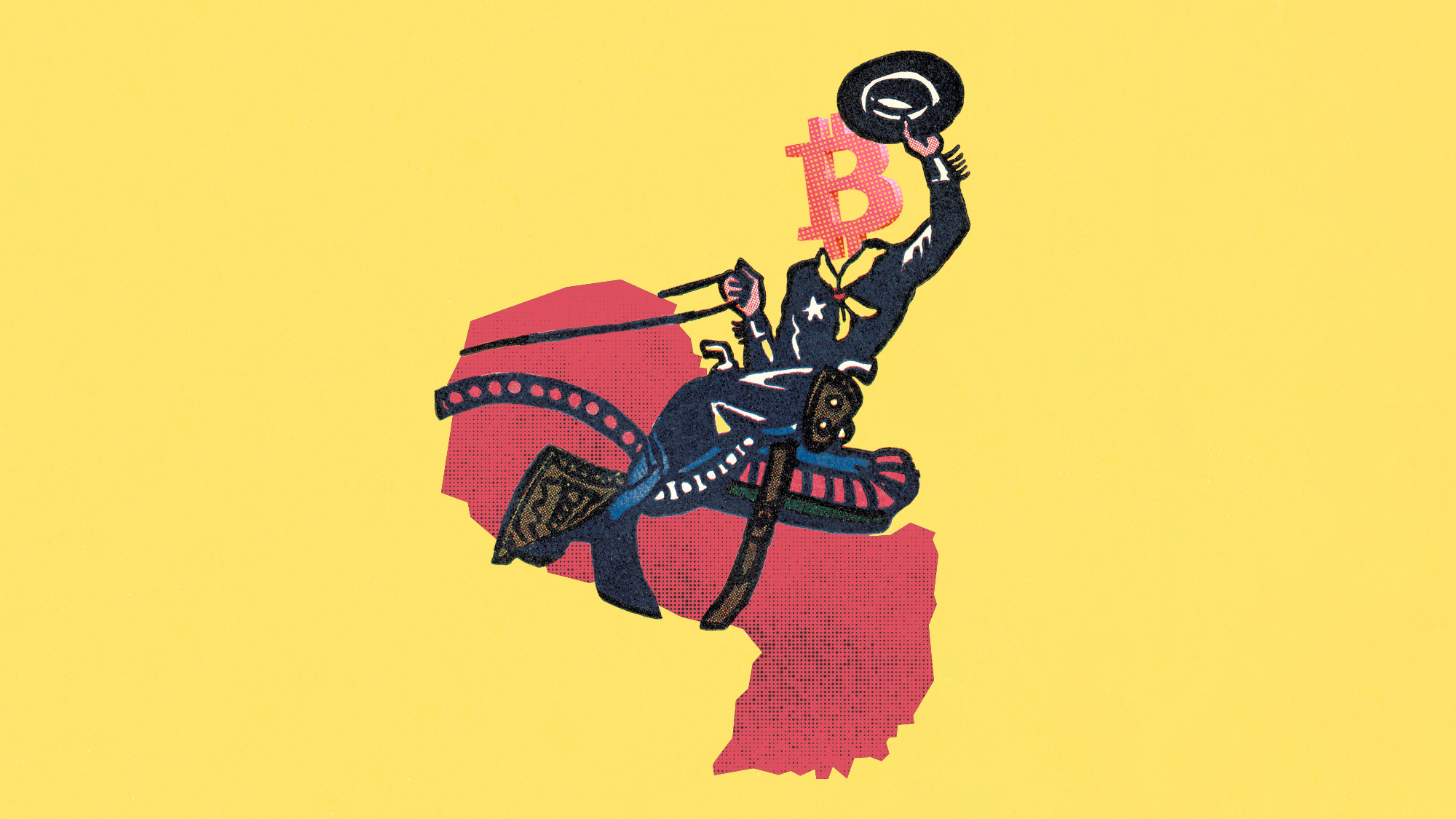Paraguay's dangerous dalliance with cryptocurrency
Overheating Paraguayans are pushing back over power outages caused by illegal miners

A free daily email with the biggest news stories of the day – and the best features from TheWeek.com
You are now subscribed
Your newsletter sign-up was successful
Paraguay is no stranger to "drug busts and bank heists" but in recent years the South American country has become a "mecca" for a very different type of crime: illegal Bitcoin mining.
Power worth around $60m a year, "enough to light up a city", is being stolen by unlicensed cryptocurrency miners, said The Economist, and there is heated debate over how to tackle the issue.
Rotting food
Besides "soybeans, timber and a massive cow population", Paraguay has "very cheap electricity", said El País, and this is why "more and more Bitcoin generators" are heading here.
The Week
Escape your echo chamber. Get the facts behind the news, plus analysis from multiple perspectives.

Sign up for The Week's Free Newsletters
From our morning news briefing to a weekly Good News Newsletter, get the best of The Week delivered directly to your inbox.
From our morning news briefing to a weekly Good News Newsletter, get the best of The Week delivered directly to your inbox.
Paraguay's massive Itaipú and Yacyretá hydroelectric dams, powered by the "very long and mighty" Paraná and Paraguay rivers, theoretically generate plentiful energy. Looking to capitalise on the excess supply, the government has encouraged cryptocurrency operators to set up in Paraguay in exchange for paying a tariff to ANDE, the state energy firm. Local laws offer mining companies other benefits, including "tax exemptions and a light regulatory framework".
However, the licensed crypto generators who have set up shop in Paraguay have been joined by dozens of cowboy operations that don't pay the tariff, and engage in energy theft that "annoys many Paraguayans", which is now starting to impact the country's energy security. The country’s "creaking transmission lines" are "increasingly overloaded" and Asunción, the capital, suffers from regular power cuts, causing "food to rot and office workers to broil in the sub-tropical heat", said The Economist.
Alarming outlook
The government had declared what it calls an "all-out attack" on crypto cowboys. Earlier this month, the Senate approved jail sentences of up to 10 years for energy thieves.
Authorities recently confiscated 450 Bitcoin mining machines – bringing the total number seized from illegal operators this year to over 10,000. During a raid in May, police and prosecutors found more than 2,700 computers in a criminal crypto compound that had been operating less than two miles from an ANDE substation. The energy firm is investigating claims that seven of its engineers illegally installed crypto farms, complete with their own power transformers.
A free daily email with the biggest news stories of the day – and the best features from TheWeek.com
The recent raids mean that Paraguay is now "keeping pace" with a regional crackdown which has seen Venezuela take similar steps, said Cryptonews, but the country's future relationship with crypto remains unclear. Advocates claim that, properly regulated, crypto mining could benefit the Paraguayan economy "greatly" but the central bank has warned that it could be used to launder drug money and finance terrorism.
A group of "industrial players" has advised against moves that could "kill off" the sector, claiming that a clampdown could hurt Paraguay's standing in the international business community, cost the nation $1.5 billion and jeopardise "hundreds" of jobs.
Just like the nation's soya bean and cattle industries, hydroelectric output is "vulnerable to climate change". As drought and heatwaves worsen, Itaipú will produce less energy and the cooling systems required by crypto farms will demand more. Official projections suggest Paraguay's electricity surplus will be used up by as early as 2030. "The outlook is alarming," Lis García, co-author of a report by Tedic, a local think-tank, told The Economist.
Chas Newkey-Burden has been part of The Week Digital team for more than a decade and a journalist for 25 years, starting out on the irreverent football weekly 90 Minutes, before moving to lifestyle magazines Loaded and Attitude. He was a columnist for The Big Issue and landed a world exclusive with David Beckham that became the weekly magazine’s bestselling issue. He now writes regularly for The Guardian, The Telegraph, The Independent, Metro, FourFourTwo and the i new site. He is also the author of a number of non-fiction books.